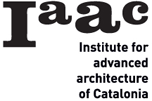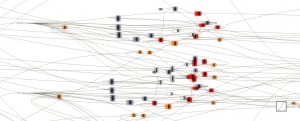DíArcy Thompsonís On Growth and Form, argues that the form in nature and the changes of form are due to the action of force.
An extraordinary optimism is evident in this work, presenting a vision of the physical world as a symphony of harmonious forces. Thompson conceived of form not as a given, but as a product of dynamic forces that are shaped by flows of energy and stages of growth.
To understand this first we have to know that forces is everything that in reality influences PARTS and structure. Parts can be understood as cities, buildings, element, joints etc.
Forces, are the initial condition that produces the motion and the particular transformations of form.
In this work Thompson aimed to unite physics and biology through an analysis of the physical limitations to the growth and structure of organisms.And how matemathically this is produce , by generating an alternative of paths and this paths can be generate into types in futher to reach the definition of form.
An extraordinary optimism is evident in this work, presenting a vision of the physical world as a symphony of harmonious forces. Thompson conceived of form not as a given, but as a product of dynamic forces that are shaped by flows of energy and stages of growth.
He took two (or more) related forms, and tried to determine whether one could be produced from the other by some simple transformation.in a analytical way by using mathematics in a way of understanding the obtained form generated for deformation of the axes compounding the whole structure.
He also explains by his “theory of transformation” ,that one species evolves into another not by successive minor changes in individual body parts but by large-scale transformations involving the body as a whole.
Leading us to questioned ourselves why can we explore structural systems in architecture that use tension and ‘tensegrity’, in which forces animate the entire structure.
Realating these to architecture nowadays theres a question that might be done and debated , by introducing all these principles that Thompson has giving us in the deformation and growth of form , The architecture of motion prioritizes form over space , shouldn’t these been seen as a whole itself ? are we been able to change even with all the tools nowdays theses style of formal conception ?

